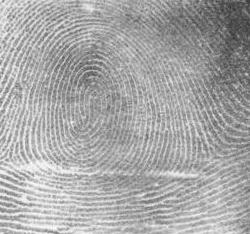I can now emerge from my study cave and tell you about it.
Physicians in the United States are licensed by the National Board of Medical Examiners (NBME). The licensing exam (United States Medical Licensing Exam or USMLE) is divided into three steps, creatively called “Step 1,” “Step 2,” and “Step 3.”
Step 1 tests basic sciences (not physics, biology, and chemistry as does the MCAT, but pathology, histopathology, physiology, anatomy, pharmacology, biostatistics, professionalism, and biochemistry). It is typically taken after the academic years and before the clinical years (a.k.a. right after second year is over, as soon as one can study enough for the exam). Step 1 consists of seven blocks of 46 multiple-choice questions (each of which have 3+ answer choices, some with more than seven, but most with five) taken over an eight hour day, which allows about thirty minutes for lunch, fifteen minutes for the testing software tutorial, and fifteen minutes for other breaks.
I and all the other M2s at my school scheduled Step 1 in January or February. It can be taken at any of hundreds of Prometric centers across the country, on any date the center is open for day-long tests (most days). That’s so much easier than scheduling the MCAT, which is only offered on certain days in large cities! (I took the MCAT on April 10, 2006 while on an extended Easter holiday from TAC, by the way, but that’s not super relevant.)
I started studying in January. I went through FA one section per week. Each section was one discipline (e.g. cardiology or microbiology or endocrinology). This means that, in addition to coursework and preparing for class exams, I was reading six to ten pages of cardiology or pharmacology (etc) per night. I also did 25 practice questions per day.
I’d done about 75% of Q-bank and had almost finished a first pass through FA when, on April 1, the M2s took a short (four-hour) test made by NBME called the Comprehensive Basic Science Exam, meant to be a simulated Step 1. Our score sorted us into risk groups (would pass easily (largest category), would pass comfortably, would pass, may not pass) which determined how stringently the school would watch our preparation. I was blessed: I would apparently pass easily. I think this was because I’d been studying since January.
Each of us met with the school’s test-taking advisor before the last day of classes to make out a schedule of review. Here’s where my story gets a little crazy.
Most med students clear out two months after their classes end so that they can belong to studying for Step 1. I…didn’t. A large family meant that I had three siblings’ graduations to go to (just within the nuclear family). A Catholic family meant that I had a Confirmation and rehearsal to go to (my confirmant, not just a friend). And discerning a vocation meant that I had a week-long program on prayer to go to (at the advice of my spiritual director).
I told all this to the test prep lady, and she sort of blinked.
“That’s okay,” she said, flipping the schedule over in her hands, considering all the penciled-in commitments. “We can work with this,” she said, reassuring herself as much as me. Because my score was decent and my goal was middle-of-the-road average (I don’t need much to get into OB/GYN, all though I’d love the score to go as high as it can), she thought it was possible to do everything I’d set out to do. We worked out a schedule where I reviewed not one discipline per week, but one per day, with two days for the really hard or voluminous subjects (e.g. endocrinology (hard for me), microbiology (voluminous), and biochemistry (both)).
On the day classes ended (the day of our last exam of the preclinical years) I rushed to finish my first pass through FA as my roommate and her boyfriend relaxed in front of the TV with a nice dinner. I finished 90% of Q-bank before resetting it to begin another phase.
My horarium for the following five weeks:
6:00am: wake up, then thirty minutes of meditation and Morning Prayer, breakfast, and (sometimes) exercise
8:00am-12:00pm: study
12:00pm-1:00pm: lunch
1:00pm-5:00pm: study
5:10pm: Evening Prayer at the Newman Center
5:30pm: Mass, then come home for dinner (or bring dinner to Newman Center and eat there)
7:00pm-9:00pm: study
9:00pm-9:30pm: recreation! (And read the CCC and the next day’s Mass readings)
10:00pm: bed
Each day I completed 100 practice questions: most of them were on the day’s topic (e.g. endocrinology), and the rest made up one 46-question block (a one-hour practice test) of all the previously-studied subjects. In total, I did 8000+ practice questions including four additional four-hour simulations, and I went through First Aid three times, with a few extras (first pass, black ink; second first pass just for bugs and drugs, blue ink; second first pass for Q-bank question answers: pencil; true second pass, green ink and highlighter; third pass, red ink).
 |
| Packages of grace for medical students nationwide. |
So all I have to say is, thank God for spiritual direction. I think I would be insane if not for that.
And thank God for meditation. I look through my journal for the past month and I’m amazed at the sinusoidal oscillation between consolation and desolation. Exhausted, I was given reassurance; anxious, I would be calmed by perspective. Sometimes, to be honest, I was too wound-up or distracted to listen well. But even the time taken apart to be quiet and away from books was good for me.
I’m not sure other M2s take away time for prayer, Mass, and reading the Catechism during their study for Step. It was a really great idea for me. Without it, Step is a ritual hazing instead of a redemptive cross. And I think I’d come out jaded and resentful instead of simply exhausted.
There’s more detail to my story (like how I went to travel to one graduation only to find out that my parents needed a dog-sitter, or like how I couldn’t find a quiet place to study in the critical end-game stage, or like how I gave myself carpal tunnel syndrome by rewriting almost the entire FA in eight-point print, or like how my index finger was so flattened by the pencil that Prometric couldn’t pick up a fingerprint from it and had to use my non-dominant hand). Maybe I’ll tell some of these stories in a future post.

